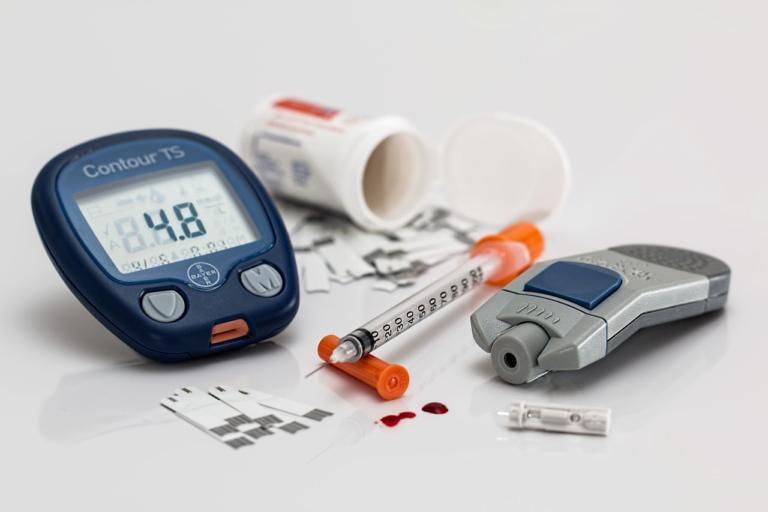Navigating Intermittent Fasting As A Diabetic: What You Need To Know
#ez-toc-container {
background: #f9f9f9;
border: 1px solid #aaa;
border-radius: 4px;
-webkit-box-shadow: 0 1px 1px rgba(0, 0, 0, .05);
box-shadow: 0 1px 1px rgba(0, 0, 0, .05);
display: table;
margin-bottom: 1em;
padding: 10px 20px 10px 10px;
position: relative;
width: auto;
}
.ez-toc-container-direction {
direction: ltr;
}
.ez-toc-list-level-1 a{
font-weight:bold;
}
Table of Contents
1. Introduction to Intermittent Fasting and Its Relevance to Diabetes
In recent years, intermittent fasting has gained significant attention both in health circles and among those seeking effective dietary strategies for managing chronic conditions. Among these, diabetes, a disease characterized by elevated blood glucose levels, has become a focal point of research. Many are beginning to understand the relevance of intermittent fasting in the context of diabetes management, but what exactly is intermittent fasting, and why is it particularly popular among diabetics?
To put it simply, intermittent fasting (IF) is a dietary approach that cycles between periods of eating and fasting. Unlike traditional diets that focus on what to eat, IF focuses on when to eat. This eating pattern can be categorized into several types, each with its unique structure and benefits.
- 16/8 Method: This is one of the most popular forms of IF, which involves restricting the daily eating period to 8 hours and fasting for the remaining 16 hours.
- 5:2 Diet: Here, individuals consume a regular diet five days of the week, while restricting caloric intake to about 500-600 calories on the remaining two non-consecutive days.
- Eat-Stop-Eat: This method includes fasting for a full 24 hours once or twice a week.
- Alternate Day Fasting: This involves alternating between regular food intake and complete fasting every other day.
- The Warrior Diet: This plan emphasizes consuming small amounts of raw fruits and vegetables during the day and a large meal at night.
While these various approaches to intermittent fasting may seem daunting, their effects on metabolic health and their impact on conditions like diabetes make them worth considering.
The popularity of intermittent fasting among diabetics is on the rise, largely due to promising research that suggests intermittent fasting can improve metabolic health markers. Several studies have highlighted the potential benefits of intermittent fasting for the regulation of blood glucose levels, reduced insulin resistance, and improved overall diabetes management. As a result, many individuals with type 2 diabetes are turning to intermittent fasting as a potential lifestyle intervention to help them manage their symptoms more effectively.
Understanding the impact of intermittent fasting on diabetes management is crucial for diabetics considering this dietary strategy. The benefits are potentially profound:
- Improved Insulin Sensitivity: Intermittent fasting may enhance the body’s responsiveness to insulin, thereby helping to manage blood sugar levels more effectively.
- Weight Management: By controlling when one eats, rather than focusing on calorie restriction, intermittent fasting can support weight loss efforts—an essential factor in managing type 2 diabetes.
- Reduction in Medication Dependency: Some diabetics may find that their need for medication decreases as they manage their condition through lifestyle changes such as intermittent fasting.
- Heart Health Benefits: Since diabetes is a risk factor for heart disease, the positive effects of intermittent fasting on blood pressure, cholesterol levels, and inflammatory markers can be particularly beneficial.
However, it is essential for diabetics to approach intermittent fasting cautiously and consult healthcare providers before making any significant lifestyle changes. Personalized medical advice is vital, especially considering the variability in the impact of dietary strategies on individual health.
Overall, while intermittent fasting presents an exciting opportunity for diabetes management, it should be considered as part of a comprehensive lifestyle approach that includes regular physical activity, nutritional monitoring, and consistent medical consultation. Through a balanced approach and informed understanding, diabetics can explore intermittent fasting as a potential tool for enhancing their health and managing their condition more effectively.

2. Potential Benefits of Intermittent Fasting for Diabetics
Intermittent fasting (IF) has gained substantial attention in recent years as a dietary approach that could potentially offer various health benefits, particularly for individuals managing diabetes. This segment delves into the potential benefits of intermittent fasting, focusing on improved blood sugar control, enhanced insulin sensitivity, potential weight loss, and additional health benefits such as reduced inflammation and improved heart health.
- Improved Blood Sugar Control and Insulin Sensitivity
One of the primary concerns for those with diabetes is maintaining blood sugar levels within a healthy range. Intermittent fasting may offer a promising avenue for assisting in this critical aspect of diabetes management.
- Enhanced Glucose Regulation: Intermittent fasting can lead to more stable blood sugar levels. During fasting periods, the body uses stored glucose from the liver before tapping into fat stores for energy. This process can promote better blood glucose regulation, minimizing the frequent spikes and crashes that many diabetics experience.
- Boosted Insulin Sensitivity: By reducing the frequency of food intake, intermittent fasting may help improve insulin sensitivity. When the body becomes more sensitive to insulin, cells can better utilize glucose, effectively decreasing blood sugar levels. Increased insulin sensitivity helps reduce the reliance on medications and improves overall health outcomes for individuals with diabetes.
Studies have shown that intermittent fasting can lead to a reduction in fasting blood sugar levels and an improvement in insulin sensitivity, specifically among individuals with prediabetes and type 2 diabetes. This improved metabolic health can significantly impact the management of diabetes.
- Potential Weight Loss Benefits and Their Impact on Diabetes
Weight management is a crucial factor for individuals with diabetes, and intermittent fasting may offer a viable strategy for weight loss.
- Caloric Deficit and Fat Loss: Intermittent fasting typically results in a caloric deficit, as individuals often consume fewer calories during feeding windows. This reduction in calorie intake can lead to weight loss, particularly in terms of body fat. Reduced body fat levels are associated with improved insulin sensitivity and better glycemic control, which are vital for managing diabetes.
- Visceral Fat Reduction: Intermittent fasting may be particularly effective in reducing visceral fat, the dangerous fat that surrounds internal organs and is linked to an increased risk of chronic diseases like diabetes and heart disease. Losing visceral fat can lead to significant health improvements and lower the risk of diabetes-related complications.
The weight loss benefits of intermittent fasting do not only contribute to better diabetes management but also improve overall health markers, boosting energy levels and improving quality of life.
- Other Health Benefits: Reduced Inflammation and Heart Health
Beyond blood sugar control and weight loss, intermittent fasting may offer several other health advantages, pivotal for individuals with diabetes.
- Reduced Inflammation: Chronic inflammation is a known contributor to the progression of diabetes and is associated with many other diseases. Intermittent fasting has been linked to reduced markers of inflammation. Short fasting periods encourage cellular repair processes, reducing inflammation and the risk of developing diabetes-related complications.
- Improved Heart Health: Cardiovascular health is a significant concern for diabetics, as they are at a higher risk of heart disease. Intermittent fasting can positively influence factors like cholesterol levels, blood pressure, and resting heart rate. These changes contribute to better heart health and lower the risk of cardiovascular events. Improved lipid profiles and blood pressure regulation are key outcomes of adopting an intermittent fasting lifestyle.
Incorporating intermittent fasting into a balanced lifestyle may offer a holistic approach to health, emphasizing the interconnectedness of diet, weight management, inflammation reduction, and cardiovascular health—key areas of focus for individuals aiming to manage diabetes effectively.
While the potential benefits of intermittent fasting for diabetics appear promising, it’s crucial to approach this dietary pattern with caution. Consulting with healthcare providers is vital to tailor fasting protocols that suit individual health needs and medical conditions. Thorough monitoring and gradual implementation can help maximize the benefits while mitigating potential risks, ensuring that intermittent fasting is a sustainable and effective strategy for managing diabetes.

3. Risks and Considerations for Diabetics Practicing Intermittent Fasting
Intermittent fasting (IF) has gained popularity as a potential strategy for weight management and improved metabolic health. However, for individuals with diabetes, particularly those on medication, it’s imperative to consider specific risks and make informed decisions. This segment highlights the potential risks, with a focus on hypoglycemia, the impact on diabetes medications, and the importance of personalized plans developed in consultation with healthcare providers.
Risk of Hypoglycemia and How to Avoid It
One of the most pressing concerns for diabetics practicing intermittent fasting is the risk of hypoglycemia, or dangerously low blood sugar levels. This condition can occur when food intake is restricted, particularly in individuals taking insulin or other glucose-lowering medications. Symptoms may include shakiness, confusion, dizziness, and in severe cases, seizures or loss of consciousness. Here’s how to mitigate this risk:
- Monitor Blood Sugar Levels Regularly: Frequent monitoring helps in identifying any sudden drops in blood sugar levels and allows for timely intervention.
- Adequate Education: Being educated about the signs of hypoglycemia can enable timely response to symptoms and help prevent severe episodes.
- Adjust Medication or Dosages: Consultation with a healthcare provider to adjust medications can help manage blood glucose levels during fasting periods.
- Plan Nutrition Accurately: Consuming nutrient-dense meals during eating windows can help maintain stable blood sugar levels.
- Carry Fast-acting Carbohydrates: Glucose tablets or sugary snacks should be kept handy to address hypoglycemia should it occur.
Understanding How Fasting Affects Different Diabetes Medications
Diabetes medications, including insulin and oral hypoglycemic agents, are designed to control blood sugar levels as part of a regular eating pattern. When fasting, the dynamics of these medications can change, necessitating careful adjustments. Here’s an overview of how different medications may be affected:
- Insulin: Those using insulin need to be cautious, as fasting can increase the risk of both hyperglycemia and hypoglycemia. Consultation with a healthcare provider is crucial to discuss dosage adjustments.
- Metformin: While metformin generally has less risk for hypoglycemia, it may need re-evaluation depending on the fasting schedule and individual health status.
- Sulfonylureas and Meglitinides: These drugs can increase the risk of hypoglycemia, especially during fasting periods. Dose adjustments may be necessary.
- DPP-4 Inhibitors and GLP-1 Receptor Agonists: These may have less impact during fasting but still require professional guidance to ensure safety.
- SGLT2 Inhibitors: Necessary to monitor because, although the risk of hypoglycemia is lower compared to other medications, dehydration during fasting can pose additional risks.
Importance of Personalized Plans and Consulting with Healthcare Providers
For diabetics, undertaking intermittent fasting should not be a one-size-fits-all approach. The complexities of diabetes management necessitate personalized plans designed in collaboration with healthcare professionals. Here’s why personalized planning and professional guidance are vital:
- Individual Health Assessments: Comprehensive health assessments can help determine if intermittent fasting is a suitable approach based on individual health status and diabetes type.
- Custom Diet Plans: Personalized nutrition plans can maximize the health benefits of intermittent fasting while minimizing risks.
- Continuous Monitoring and Adjustments: Regular check-ups and continual assessment of progress and challenges ensure that fasting practices remain safe and effective.
- Emotional and Mental Support: Fasting can be a mental challenge. Having a support system that includes healthcare professionals can provide necessary guidance and encouragement.
By understanding the risks and considering these crucial factors, individuals with diabetes can potentially include intermittent fasting in their lifestyle while maintaining safety and efficacy. Collaborative care with healthcare providers ensures that each step is tailored to an individual’s medical needs, ultimately supporting better health outcomes.
4. Best Practices for Diabetics Considering Intermittent Fasting
Intermittent fasting has gained significant traction in recent years due to its potential health benefits, including weight management and improved metabolic health. For diabetics considering this approach, it is crucial to adopt best practices that ensure safety and maximize benefits. Here, we delve into evidence-backed strategies for safely incorporating intermittent fasting into a diabetic lifestyle, recognizing warning signs, and tailoring meal plans for optimal health results.
-
Tips for Safely Starting Intermittent Fasting with Diabetes
-
Consult Healthcare Professionals:
Before embarking on intermittent fasting, it’s imperative for diabetics to discuss the plan with their healthcare providers. This step ensures that fasting aligns with their medical history and current health status.
-
Choose the Right Fasting Method:
Not all intermittent fasting plans are suitable for diabetics. Methods like the 16:8 plan, where individuals fast for 16 hours and eat during an 8-hour window, tend to be more manageable.
-
Start Gradually:
Ease into fasting by gradually extending the fasting period. This approach allows the body to adjust without causing drastic changes in blood sugar levels.
-
Stay Hydrated:
Proper hydration is crucial during fasting hours. Water, herbal teas, and electrolyte-rich drinks can help maintain energy levels and support overall health.
-
Consult Healthcare Professionals:
-
Monitoring Blood Sugar Levels and Recognizing Danger Signs
-
Frequent Monitoring:
Regularly check blood sugar levels using a glucometer, especially when transitioning to fasting. This helps in identifying patterns and avoiding hypoglycemia or hyperglycemia.
-
Recognize Symptoms of Hypoglycemia:
Symptoms such as dizziness, sweating, confusion, and irritability can indicate low blood sugar. Immediate consumption of fast-acting carbohydrates is necessary to stabilize sugar levels.
-
Acknowledge Hyperglycemia Signs:
Symptoms of high blood sugar include frequent urination, increased thirst, and fatigue. If these occur, it’s essential to consult a healthcare provider quickly to adjust treatment plans.
-
Keep Tools Handy:
Always have glucose tablets or sugary snacks nearby to quickly address unexpected drops in blood sugar.
-
Frequent Monitoring:
-
Adjusting Meal Plans and Fasting Schedules for Optimal Health Outcomes
-
Prioritize Nutrient-Dense Meals:
During eating windows, focus on meals rich in whole grains, lean proteins, healthy fats, and abundant fruits and vegetables to stabilize glucose levels and provide sustained energy.
-
Balance Macronutrients:
A balanced diet combining carbohydrates, proteins, and fats helps manage blood sugar responses and supports metabolic health.
-
Customize Fasting Schedules:
Align fasting schedules with lifestyle and medical needs. Flexibility in fasting times allows adjustment for changes in routine or activity levels.
-
Mindful Snack Choices:
Opt for low-glycemic snacks such as nuts, seeds, and yogurt during non-fasting periods to avoid blood sugar spikes and crashes.
-
Prioritize Nutrient-Dense Meals:
While intermittent fasting can be a valuable strategy for managing diabetes, it requires careful planning and monitoring. By following best practices, diabetics can safely explore intermittent fasting while working towards improved health outcomes.







